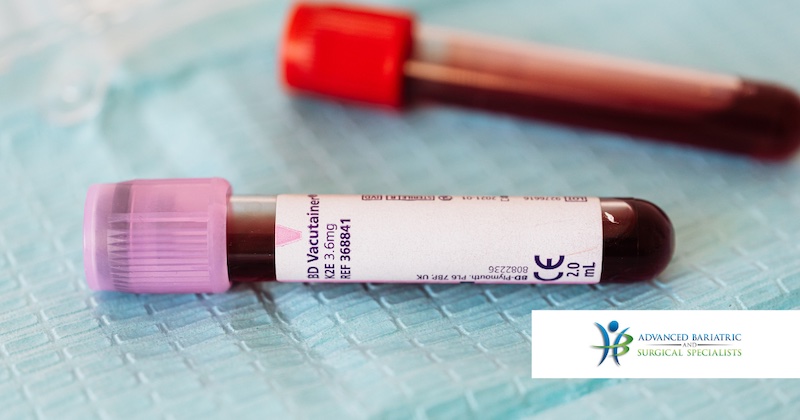Anemia After Bariatric Surgery
Anemia is a blood disorder in which patients either do not have enough hemoglobin in their red blood cells or do not have enough red blood cells. Since red blood cells carry oxygen throughout the body, a lack of oxygen due to anemia can cause symptoms ranging from mild to severe. There are a number of causes for anemia, some of which stem from the effects of bariatric surgery.

What causes anemia after bariatric surgery?
The most common cause of anemia after bariatric surgery is iron deficiency. This can occur for a couple of different reasons. First, many patients will not be eating enough iron rich foods. Red meat for example, which is high in iron, may be difficult to eat or digest after bariatric surgery, especially in the early weeks after your procedure. The second reason stems from malabsorption in the small intestine. The bypassed small intestine created during the gastric bypass means that less iron will be absorbed. There are also other, less common causes for anemia including a bleeding ulcer in the digestive tract or deficiencies in folic acid or vitamin B12.
The symptoms of anemia
There are a number of symptoms related to anemia. Depending on the level of deficiency, these symptoms may be mild or severe and include:
- Chronic tiredness and fatigue
- Shortness of breath
- Headache
- Dizziness
- Cold extremities
- And more
How do we treat anemia?
The potential for anemia and its related conditions is one of the many good reasons why you should attend all of your postoperative visits with Dr. Chang. Periodically, we will draw blood and analyze it for any vitamin and mineral deficiencies as well as screen for anemia. While many deficiencies may present themselves early after surgery, anemia may take months or even years to develop. If we do find concerning red blood cell levels, we will begin with lifestyle change to incorporate more iron rich foods and possibly prescribe an iron supplement. If dietary and lifestyle changes do not work, there may be a more serious underlying issue which will be investigated and treated. Following the post-operative diet and exercise plan should minimize the risk of anemia.
Preventing anemia
We do our very best to help prevent anemia after bariatric surgery by providing a comprehensive postoperative plan that incorporates a balanced, healthy diet. Fortunately, many of the foods that are high in iron are also excellent for your health and many are low-calorie with low sugar and fat. In order to minimize the chances of getting anemia, we always suggest that you incorporate the following into your diet
- Dark leafy greens like kale, spinach, turnip greens and collard greens
- A variety of lean meats
- Legumes such as lentils and beans in smaller quantities
- Soy and tofu
All patients will be required to take a multivitamin including iron after bariatric surgery. This multivitamin supplement iron sufficiently in the body, but an additional supplement may be necessary to ensure appropriate intake.
As with many vitamins and minerals in our body, there are other compounds that react to increase or reduce absorption. In this case, vitamin C increases the absorption of iron in the body. Before taking any vitamin C supplements or increasing your intake of vitamin C rich foods, please get clearance to do so from Dr. Chang as iron overdose can be dangerous.
The bottom line is that anemia can affect anyone, whether they are bariatric surgery patients or not. Ultimately, staying the head of anemia by attending your regular post-op visits is the best way to prevent this condition.

